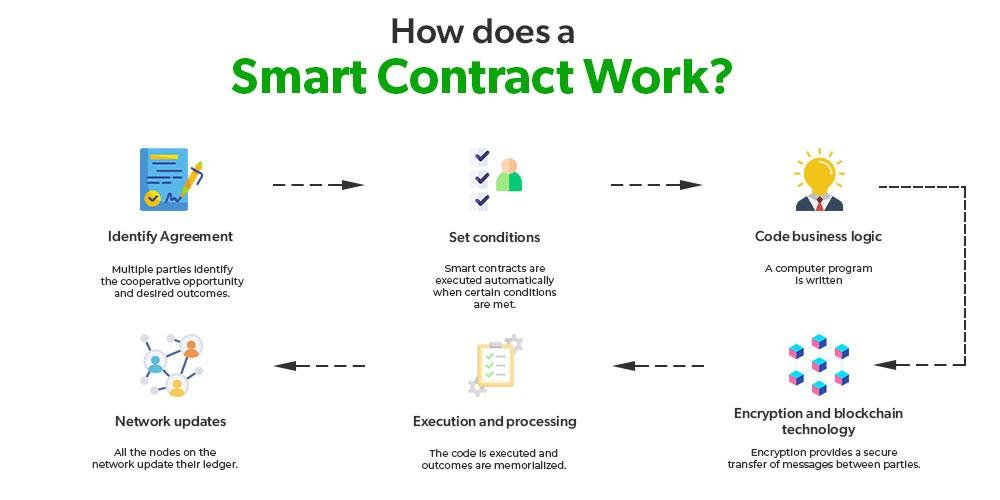How Smart Contracts Are Transforming the Legal Industry

Introduction
As technology continues to reshape industries, the legal sector is on the verge of a major transformation. Smart contracts, powered by blockchain technology, are emerging as a game-changer in how legal agreements are made and enforced. These digital contracts are set to challenge traditional legal practices, offering new possibilities for efficiency, transparency, and trust. This article explores how smart contracts are simplifying legal processes, and what their growing influence means for lawyers, clients, and the future of justice in a digital world.

The Rise of Smart Contracts and Their Impact on Legal Processes
Smart contracts are self-executing agreements with the terms written directly into code, meaning they automatically carry out actions once certain conditions are met. This technology is revolutionizing the legal field by reducing the need for intermediaries, saving time and money. Some key benefits of smart contracts include:
- Transparency: All parties can view the agreed-upon terms, reducing misunderstandings and disputes.
- Immutability: Once a smart contract is deployed, it can’t be changed, preventing fraud and enhancing security.
- Efficiency: Actions are automatically executed based on preset conditions, speeding up the entire process.
While there are still challenges—such as adjusting legal frameworks to accommodate this new technology—the potential for change is enormous. Law firms are starting to use smart contracts in areas like property deals, supply chain agreements, and intellectual property rights. Here’s a comparison of traditional contracts and smart contracts:
| Aspect | Traditional Contracts | Smart Contracts |
|---|---|---|
| Execution | Manual, often requiring third-party intervention | Automated, with no intermediaries needed |
| Cost | Higher due to legal fees and administrative costs | Lower, due to reduced labor and processes |
| Efficiency | Can be time-consuming | Rapid execution based on programmed conditions |

Enhancing Contractual Clarity Through Automated Execution
Legal agreements are often clouded with ambiguity, leading to disputes and delays. Smart contracts address this problem by automating the execution of the agreement, ensuring clarity and precision. Since the terms are written into code, everyone knows exactly what is expected, and there’s no room for misinterpretation.
Another advantage is the accessibility of smart contracts. These digital contracts are stored on a decentralized blockchain, making it easy for all involved parties to verify compliance, without needing a middleman. This brings several benefits:
- Transparency: All parties have access to the same version of the contract.
- Efficiency: Automated execution speeds up the process.
- Cost Savings: Less need for legal counsel to interpret complex contract terms.
By reducing reliance on intermediaries and improving transparency, smart contracts foster a more collaborative and trustworthy environment among business partners.
Read Also: Smart Contracts vs. Traditional Contracts: A Legal Comparison

Reducing Risks and Disputes with Blockchain Technology
The legal world is often plagued by misunderstandings and disputes. Blockchain technology, which powers smart contracts, can reduce these risks. Blockchain’s decentralized, tamper-proof nature ensures that once an agreement is made, it cannot be altered, ensuring that parties fulfill their obligations as planned.
This technology also makes contract disputes easier to resolve. Traditional legal processes can involve lengthy litigation, but smart contracts provide faster, more efficient resolutions. Here’s how blockchain helps:
- Transparency: Everyone has access to the same information.
- Accessibility: Legal documents are easier to manage and verify.
- Efficiency: Contracts are executed instantly, saving time.
- Cost Reduction: Fewer intermediaries means lower costs.
In short, blockchain helps ensure that agreements are clear, secure, and enforceable, and it enables quicker resolution of disputes.

Ethical Considerations in Smart Contract Implementation
As smart contracts gain traction, it’s important to consider the ethical implications. For example, all parties involved in a smart contract must be fully informed about how the agreement works, including how data is used and how decisions are made. There’s also the risk that automated systems could unintentionally replicate biases or inequalities that exist in legal or societal systems.
Another key ethical issue is the security of sensitive data. Lawyers and developers must work together to ensure that the smart contract code complies with security standards and legal regulations, protecting everyone involved.
The legal profession must also ensure that the smart contract implementation process follows ethical guidelines and protects the interests of all parties. Collaboration between legal experts and technology professionals will be crucial to creating best practices for using smart contracts responsibly.
To Conclude
Smart contracts are more than just a technological advancement—they are transforming how legal agreements are made and enforced. By automating execution and fostering transparency, smart contracts can make the legal process more efficient, cost-effective, and secure. These benefits could change how lawyers and clients navigate the world of legal agreements and transactions.
However, as with any new technology, the rise of smart contracts also brings ethical, legal, and regulatory challenges. To ensure that smart contracts are used effectively and fairly, legal professionals must work closely with technologists to address these issues. As the lines between law and technology continue to blur, the legal industry must evolve to ensure that smart contracts reflect the principles of justice, fairness, and accessibility.
















































































































































































































































































































































































































































































































































